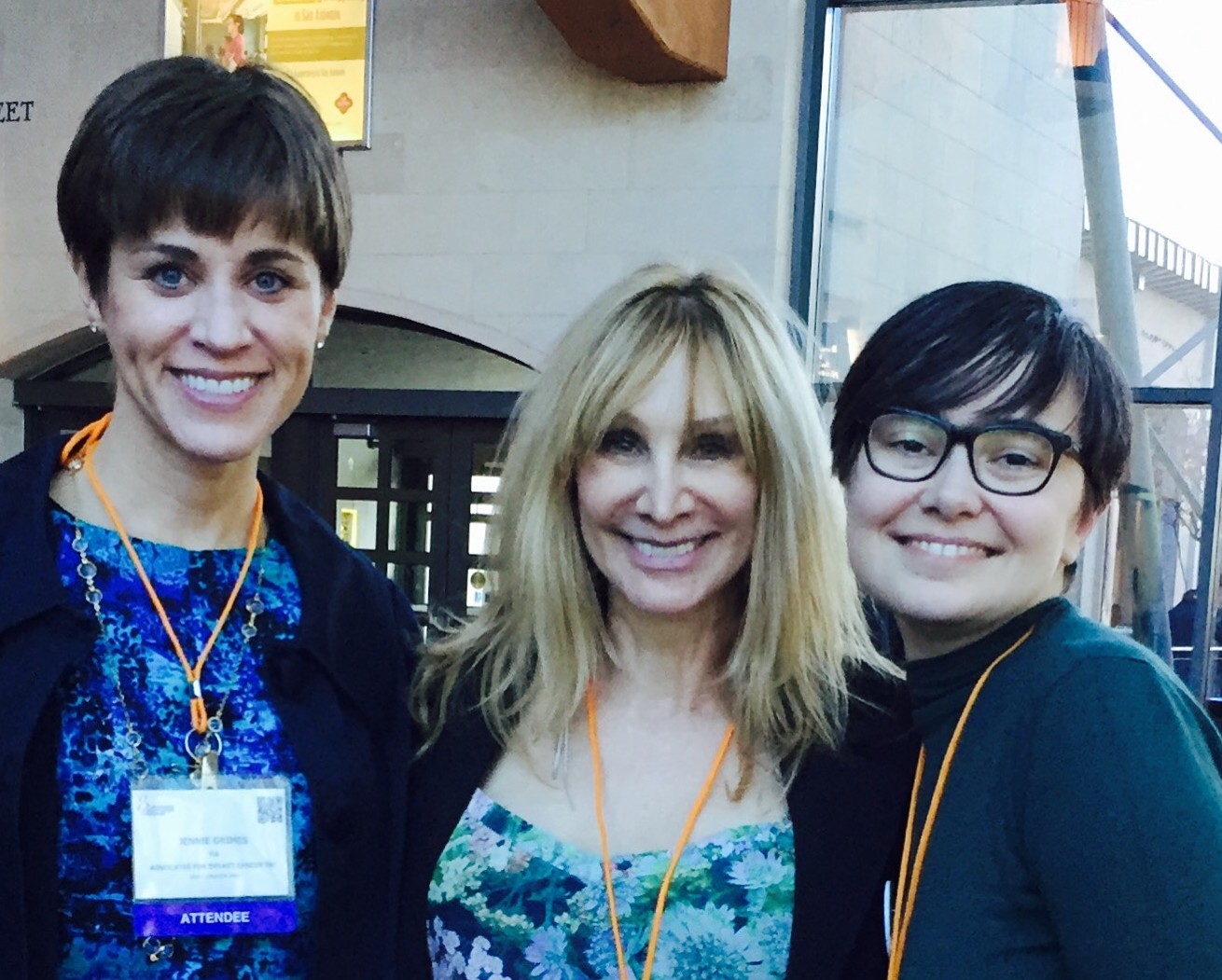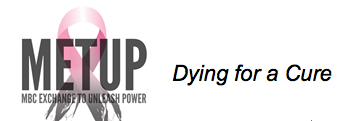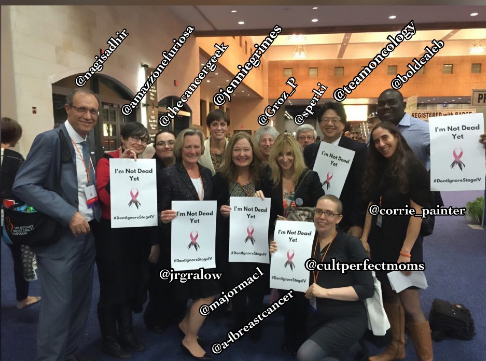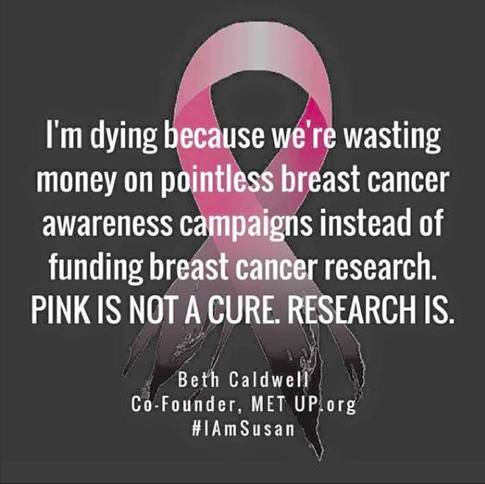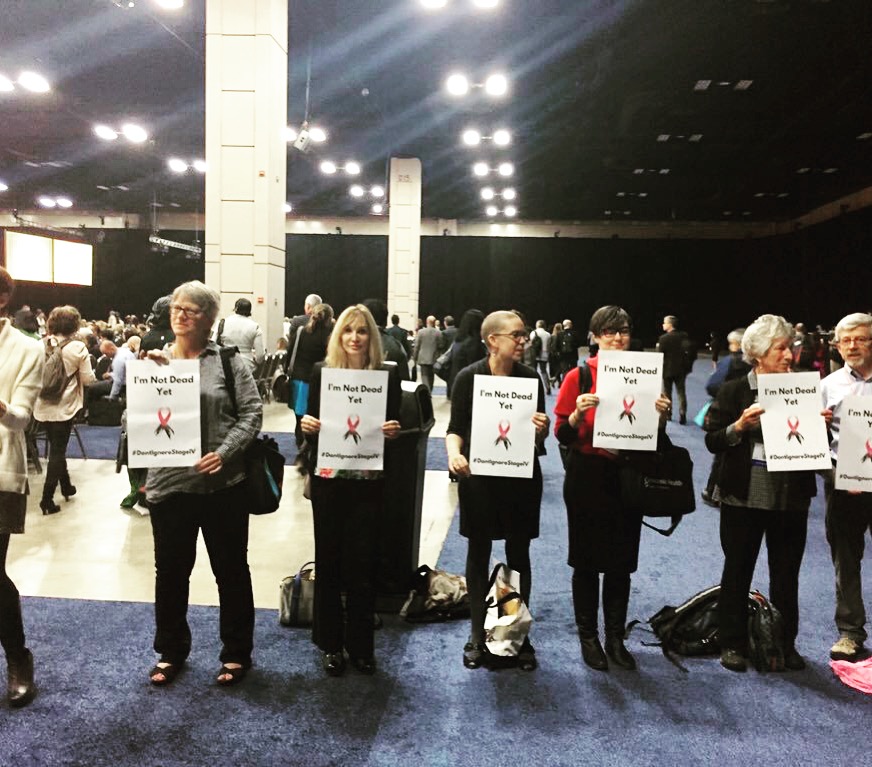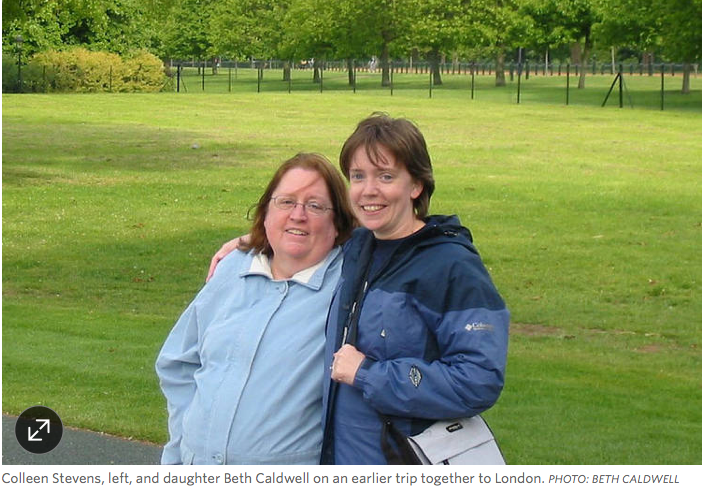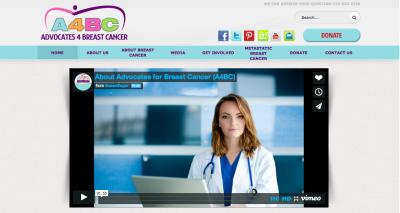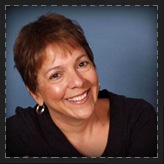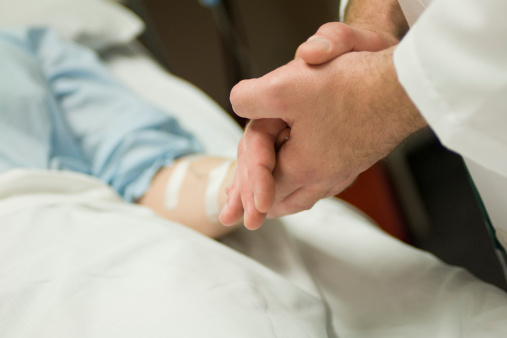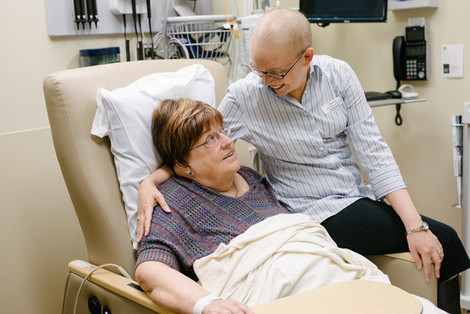
A Seattle mother and her daughter both have breast cancer. They support each other through arduous treatments and the pain of watching a loved one suffer.
Sourced through Scoop.it from: www.wsj.com
Great Article by Sumathi Reddy about Beth Caldwell and her mom Colleen ‘Susi’ Stevens supporting each other while both are going through breast cancer treatment. I am so lucky that I am with Beth at the San Antonio Breast Cancer Symposium and I can’t wait to blog more about this incredible experience.
To learn more about the great work Beth is doing for Metastatic Breast Cancer please go to http://www.metup.org. To see her blog go to: http://cultofperfectmotherhood.com/
————————————————————–Sourced Sourced through Scoop.it from: www.wsj.com
Suffer
By Sumathi Reddy
Seattle
Colleen ‘Susi’ Stevens, left, and her daughter Beth Caldwell together at Ms. Stevens’ final chemotherapy session in November at a Seattle hospital. ENLARGE
Colleen ‘Susi’ Stevens, left, and her daughter Beth Caldwell together at Ms. Stevens’ final chemotherapy session in November at a Seattle hospital. Photo: Ian C. Bates for The Wall Street Journal
In between the seamless stream of conversation between mother and daughter—jumping from holiday gifts for the children to the adults’ lifetime Girl Scouts membership—they chat about their breast cancers.
Sitting together at a Seattle restaurant, Colleen Stevens recalls the time the two went wig shopping. Her daughter, Beth Caldwell, eventually decided to go bareheaded. They talk about their shared oncologist, Eddie, as if he’s a relative. (Ms. Caldwell exchanges texts with him and they are working on a book together.)
The mother and daughter barely eat the Gorgonzola and wild mushroom pizzas sitting in front of them. “The chemo,” says the 67-year-old Ms. Stevens, who goes by the nickname Susi. “It kills your appetite.”
Ms. Caldwell, who is 39, was diagnosed in March 2014 with Stage 4 metastatic breast cancer that has spread to her brain, liver and bones. She is continuing treatments but knows her reality: The cancer isn’t going away; it will eventually take her life. Metastatic breast cancer patients live an average of three years after diagnosis.
Advertisement
Just over a year after her diagnosis, Ms. Caldwell’s mother was diagnosed with Stage 2a triple negative breast cancer, a particularly aggressive type.
Their cancers aren’t related, nor are they linked by known genetic mutations.
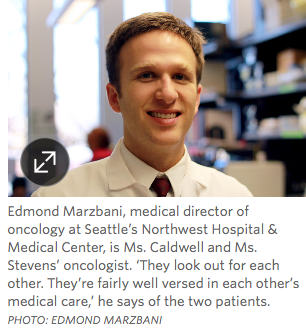
“You have to live fearing that the cancer is going to come back,” Ms. Caldwell tells her mother. “And I have to live knowing it’s going to kill me.”
Beth Caldwell, who has become an advocate for cancer-research funding, wrote in a blog post: ‘People ask me why I’m so committed to getting more research done on metastatic breast cancer, knowing that I’m not likely to live long enough to benefit from it. I don’t want my mom to die of breast cancer. It’s always been personal for me, but it’s even more personal now.’ ENLARGE
Beth Caldwell, who has become an advocate for cancer-research funding, wrote in a blog post: ‘People ask me why I’m so committed to getting more research done on metastatic breast cancer, knowing that I’m not likely to live long enough to benefit from it. I don’t want my mom to die of breast cancer. It’s always been personal for me, but it’s even more personal now.’ Photo: Ian C. Bates for The Wall Street Journal
One in eight women in the U.S. will be diagnosed with breast cancer in her life. Experts say it isn’t rare for mothers and daughters to both have the disease. About 7% of breast cancers are in women under the age of 40, who tend to have more aggressive cases.
The risk of breast cancer doubles if one has a first-degree relative—such as a mother or daughter—who has also been diagnosed. Oncologists say only a small portion of these cases are linked to inherited mutations of the BRCA1 and BRCA2 genes.
“We definitely see family clusters and even when we look at 17 or 23 genes we’re still not seeing an underlying gene mutation,” says Jennifer Litton, an associate professor in breast medical oncology at MD Anderson Cancer Center in Houston. “So it’s probably more than just one gene or a perfect storm of genes and other factors in the environment.”
“I think the moms who have gone through chemo, they’re scared for their daughter. They know what she’s facing,” Dr. Litton says.
Edmond Marzbani, a 35-year-old, soft-spoken doctor who is medical director of oncology at Northwest Hospital & Medical Center, part of the Seattle Cancer Care Alliance, is Ms. Caldwell and Ms. Stevens’ oncologist. “They look out for each other. They’re fairly well versed in each other’s medical care,” says Dr. Marzbani, who said the two patients have given him permission to discuss any details of their cases with each other.
Dr. Marzbani says he sometimes worries bad news from one patient will affect the other emotionally. But he knows that ultimately both of them would be upset if he wasn’t honest. “They are so close in this particular situation that it would be pointless,” he says.
Colleen Stevens, left, and daughter Beth Caldwell on an earlier trip together to London. ENLARGE
Colleen Stevens, left, and daughter Beth Caldwell on an earlier trip together to London. Photo: Beth Caldwell
Ms. Caldwell, a former civil rights education attorney, over the past year has helped found MET UP, a nonprofit that lobbies for more funding for metastatic breast cancer research. She and her mother live 20 minutes apart in the north end of Seattle. Her parents live in the same green ranch-style house in the quiet middle-class neighborhood she and her older sister grew up in.
Ms. Caldwell seems relentlessly cheery. Her parents—Ms. Stevens and her husband, Leigh—seem to share her sense of humor. Cancer jokes aren’t out of bounds.
“It’s either laugh or cry and we choose to laugh,” says Mr. Stevens, a 67-year-old retired Boeing computer programmer. But ask him how he copes and he pauses. “There are actually days I don’t cry,” he says.
Ms. Caldwell and her husband have two children. Maggie recently turned 4; James is 8. Her husband—James, who goes by J—picks up a lot of the parenting work when she is too fatigued or travels to a conference or to lobby Congress as part of her advocacy work. He comes to treatments and doctor appointments.
“J is my rock,” says Ms. Caldwell. “Divorce in the cancer world is ridiculously common. But I have never had any worries that J would cut and run.”
The hardest part, Ms. Caldwell says, is knowing that death is coming and being able to explain that to her children.
“Maggie is so small, she doesn’t remember a time when Mom didn’t have cancer,” she says. “Jim understands that we don’t know how long Mom has.” Her son talks about wanting to be a cancer researcher, about finding a cure for his mom.
Ms. Caldwell was 37 when she found a lump in her breast. She told her parents the news over the phone the day she was diagnosed. “They were scared, and supportive, asking how they could help and offering to watch the kids and bring us food,” she recalls. When she found out a week later the cancer had spread, she was too emotional to tell them and had her sister break the news.
Edmond Marzbani, medical director of oncology at Seattle’s Northwest Hospital & Medical Center, is Ms. Caldwell and Ms. Stevens’ oncologist. ‘They look out for each other. They’re fairly well versed in each other’s medical care,’ he says of the two patients. ENLARGE
Edmond Marzbani, medical director of oncology at Seattle’s Northwest Hospital & Medical Center, is Ms. Caldwell and Ms. Stevens’ oncologist. ‘They look out for each other. They’re fairly well versed in each other’s medical care,’ he says of the two patients. Photo: Edmond Marzbani
Ms. Caldwell has an unusual neuroendocrine form of breast cancer which usually starts in the pancreas or lungs. Dr. Marzbani recommended aggressive treatment. She had a harsh regimen of chemotherapy for three months. A single mastectomy was followed by radiation to the chest wall in the fall of 2014.
In April Ms. Caldwell learned the cancer had spread to her brain and liver. She underwent radiation therapy on her brain to shrink the five tumors found there. Over the summer eight more were found in her brain. She underwent a second round of chemotherapy to combat the liver tumors.
Around the same time, Ms. Caldwell got a Facebook message from her mother informing her she had a breast biopsy. “I was like, ‘Mom, you don’t tell me that by Facebook!” She immediately texted Dr. Marzbani. “If my mom has cancer, can you see her next week?”
Ms. Stevens’ cancer hadn’t spread to her lymph nodes, which means there is a lower risk of it coming back as metastatic cancer. But it was very aggressive. She had a lumpectomy in August. She started her chemotherapy in September just as Ms. Caldwell’s treatments were ending. “We joked about doing chemo in adjacent rooms,” Ms. Caldwell says.
In November, Ms. Stevens was in the hospital for her final chemotherapy treatment. Ms. Caldwell jumped up to get her mother a blanket.
“Do you know where it is?” her mom asks.
“Of course!” Ms. Caldwell exclaims.
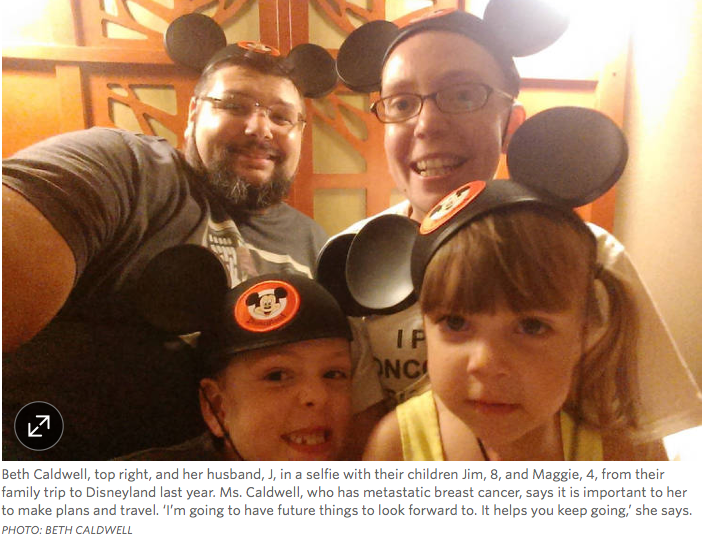
Beth Caldwell, top right, and her husband, J, in a selfie with their children Jim, 8, and Maggie, 4, from their family trip to Disneyland last year. Ms. Caldwell, who has metastatic breast cancer, says it is important to her to make plans and travel. ‘I’m going to have future things to look forward to. It helps you keep going,’ she says. ENLARGE
Beth Caldwell, top right, and her husband, J, in a selfie with their children Jim, 8, and Maggie, 4, from their family trip to Disneyland last year. Ms. Caldwell, who has metastatic breast cancer, says it is important to her to make plans and travel. ‘I’m going to have future things to look forward to. It helps you keep going,’ she says. Photo: Beth Caldwell
When Ms. Stevens’ hair started falling out from chemotherapy, her daughter told her to just shave it off. The mother felt devastated, however, and called her daughter and said, “When I look in the mirror I see an old man.”
“We got a wig that made her feel human again,” Ms. Caldwell says. “It looks great on her.”
Ms. Stevens says it has been tremendously helpful having a daughter who knows the ins and outs of cancer. “It’s been nice for me in that way but it has been hell having a daughter with cancer,” she says. “You never expect your kids to die like that.”
The chemotherapy has been rough on Ms. Stevens. The side effects, such as fatigue and nausea, have kept her mostly home. She has been hospitalized twice for fevers. Last week she saw her radiologist. They want her to start radiation treatments soon.
“I’m going to stop treatment in January but that doesn’t mean everything is OK,” Ms. Stevens says. “It just means we’re going to keep testing and testing and testing to make sure” it doesn’t return.
The five-year survival rate for the type of breast cancer Ms. Stevens has is about 75%, Dr. Marzbani says.
Ms. Caldwell started an oral chemotherapy pill called Xeloda in October. It is gentler than the intravenous chemo she previously had and can penetrate the blood-brain barrier. Preliminary results look good. A brain MRI last week showed the brain tumors appeared to be gone. It was the best news she has had in a while.
“Her most recent scans look promising,” Dr. Marzbani says.
Her mom was ecstatic. “We really hope it continues to work and that she can hold it off,” says Ms. Stevens. “We’re still living under the pall of her dying. I think I will be more relaxed or not quite as stressed once we know that my half of the problem is gone. But of course there is the constant strain of her half of the problem.”
Little things keep Ms. Caldwell occupied. She talks about middle schools for her son. Next year the family has booked a cruise from New York to England and Scotland. “It’s always in the back of your mind that this may not happen,” she says. “But you plan it anyway.”
After Ms. Caldwell was first diagnosed, friends of hers were planning a group Caribbean cruise and asked if she and her husband wanted to come. That was 18 months away. “It felt like it was a way of saying, I’m not just going to live in this awful moment. I’m going to have future things to look forward to. It helps you keep going.”
Next month they will go on that cruise. Her parents will baby-sit.
 It was so thrilling to attend #ESCAPE2016. How wonderful the BAG IT organization is committed to combining patient advocacy with self discovery. meditation, group exercises, meetings about effective lobbying, running non-profits and even a special Indian dance.
It was so thrilling to attend #ESCAPE2016. How wonderful the BAG IT organization is committed to combining patient advocacy with self discovery. meditation, group exercises, meetings about effective lobbying, running non-profits and even a special Indian dance. 
 The desert was beautiful, but a little warm this time of year. With a no cell phone policy at Miravel Resort, it was nice to not feel so absorbed by the 100’s of tweets, FB posts, texts, and emails, as I tried to balance the great conferences with classes and even group meditations in pods!
The desert was beautiful, but a little warm this time of year. With a no cell phone policy at Miravel Resort, it was nice to not feel so absorbed by the 100’s of tweets, FB posts, texts, and emails, as I tried to balance the great conferences with classes and even group meditations in pods!
 I also realized that I have been dealing with a lot of grief. Thankfully I was surrounded by awesome people.
I also realized that I have been dealing with a lot of grief. Thankfully I was surrounded by awesome people.  During many of the special meditative and group activities, I found myself quite emotional. I do believe that when it comes to cancer there’s so much emotional pain, physical changes, highs and lows, and some very tough times because of the incredible toll this disease can take. Thank you to the sponsors who help bring Escape2016 to patient advocates.
During many of the special meditative and group activities, I found myself quite emotional. I do believe that when it comes to cancer there’s so much emotional pain, physical changes, highs and lows, and some very tough times because of the incredible toll this disease can take. Thank you to the sponsors who help bring Escape2016 to patient advocates.
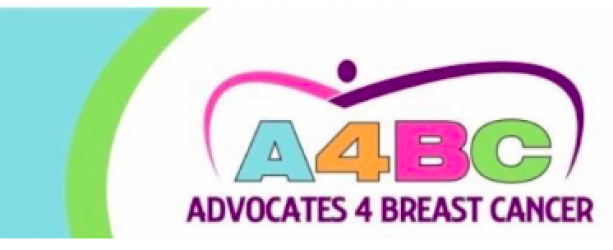



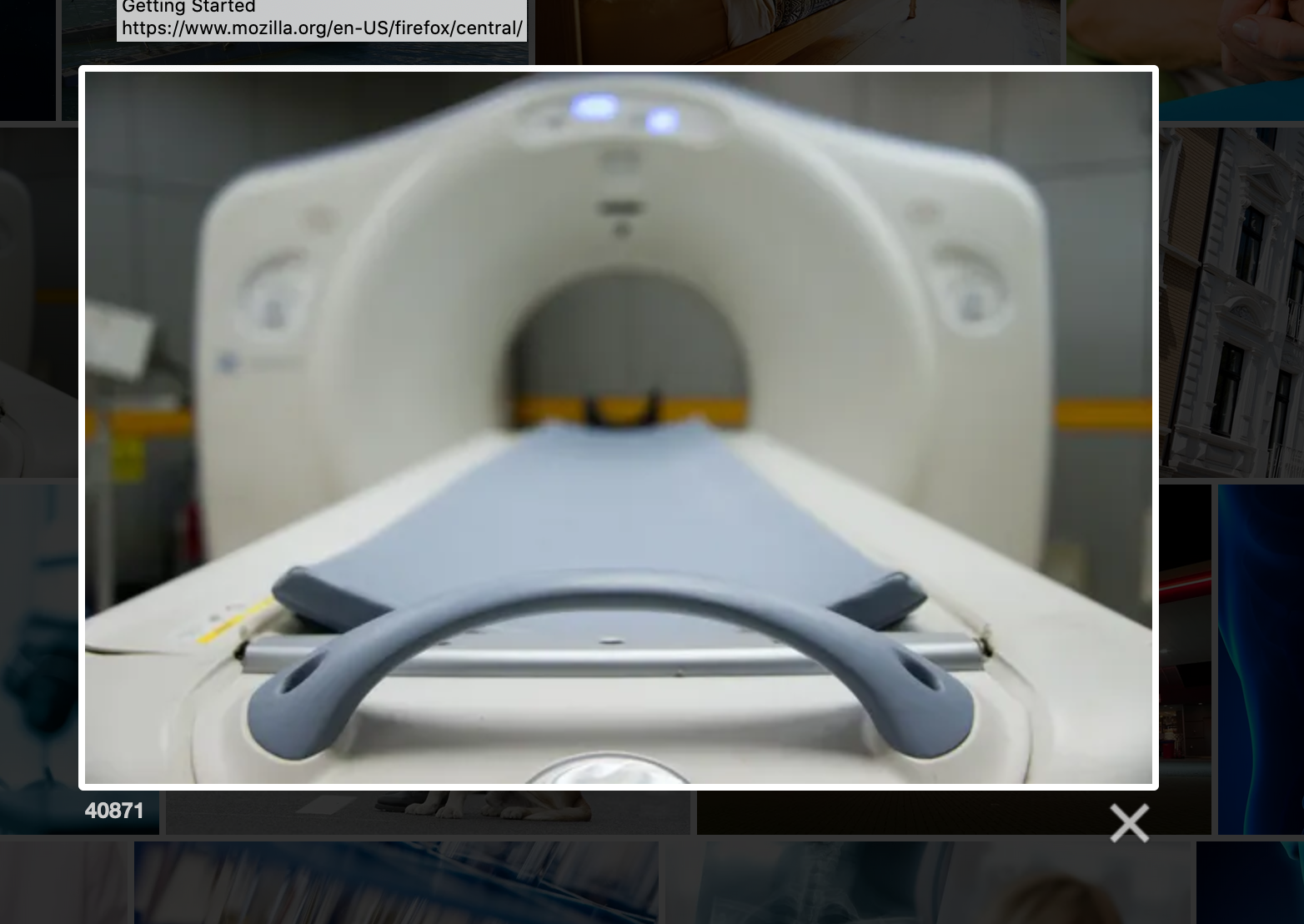
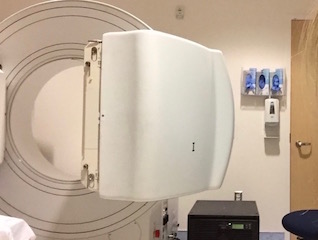 Just when I thought all was clear I got a call from my oncologist that after further inspection there is a suspicious spot on my spine at T8. Tomorrow they do an MRI with contrast on my spine and see if a biopsy is warranted.
Just when I thought all was clear I got a call from my oncologist that after further inspection there is a suspicious spot on my spine at T8. Tomorrow they do an MRI with contrast on my spine and see if a biopsy is warranted.

